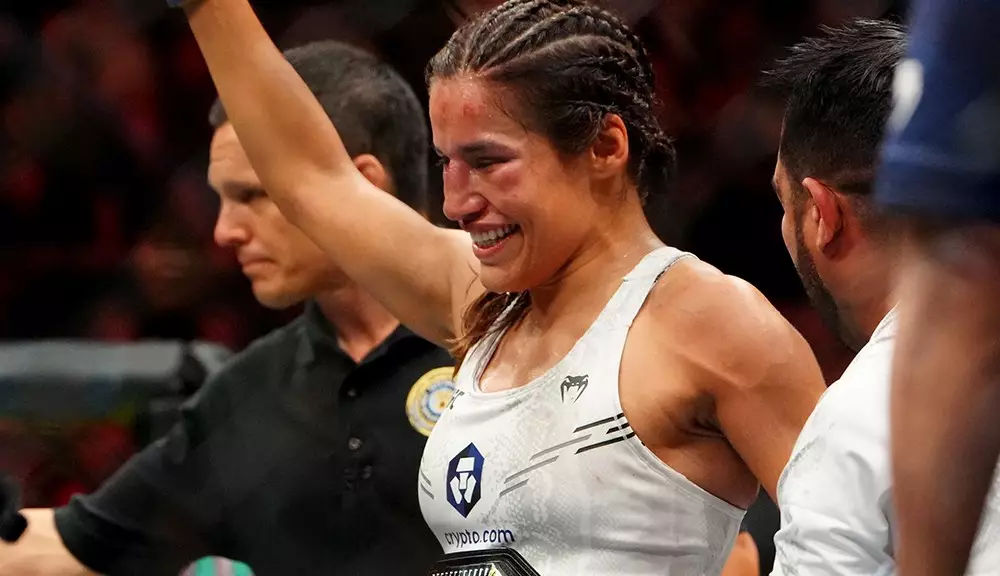At UFC 307, Julianna Peña seized the spotlight by reclaiming her bantamweight title in a hard-fought split decision against Raquel Pennington. This victory, occurring in front of an electrified crowd at the Delta Center in Salt Lake City, could have been a significant moment not just for Peña but for the entire division. As the co-main event unfolded, attention turned to Kayla Harrison, who had already secured her position as the No. 1 contender by defeating Ketlen Vieira earlier that evening. This setting represented a perfect stage for Peña to lay her claim for an upcoming title defense, yet she chose a different path.
Daniel Cormier, a seasoned analyst and former champion, expressed disappointment in Peña’s post-fight interview. While speaking with Joe Rogan in the octagon, Peña opted to call for a trilogy fight with Amanda Nunes, neglecting to mention Harrison, who was visibly present and keenly listening. Cormier highlighted the strategic misstep, arguing that Peña had not only overlooked the imminent threat that Harrison poses but also failed to capitalize on a fortuitous moment to hype their potential matchup. “She dropped the ball on the callout,” he remarked on his YouTube channel, pointing out the obvious implications of Harrison’s presence onscreen.
By not recognizing Harrison as a formidable contender in her immediate future, Peña may have inadvertently placed herself at a tactical disadvantage. Cormier rightly pointed out that a callout could have placed Peña a step ahead, allowing her to control the narrative heading into what is likely to be a high-stakes fight. Instead, she now finds herself having to catch up, as the fight with Harrison looms closer. Furthermore, Cormier underscored the fact that Harrison’s performance against Vieira wasn’t her best, suggesting that this was a prime opportunity for Peña to build anticipation for their upcoming clash.
Peña’s oversight might have serious ramifications within a division that thrives on rivalries and hype. With Harrison now at the forefront, the bantamweight landscape is poised for significant change. Matchmaking in the UFC demands not just skill in the octagon but also an astute understanding of public relations and promotional opportunities. By failing to engage with Harrison’s recent success, Peña risks diminishing both her promotional narrative and her preparation for what promises to be a challenging fight.
Julianna Peña’s decision to overlook Kayla Harrison following her title victory is a lesson in the importance of strategic awareness inside and outside the octagon. As fans eagerly await the developments in the bantamweight division, one thing is clear: missed opportunities can have long-lasting effects, and fighters must master the art of promotion just as much as their physical craft. For Peña, the moment has passed, but moving forward with this experience could shape her narrative for the better.

